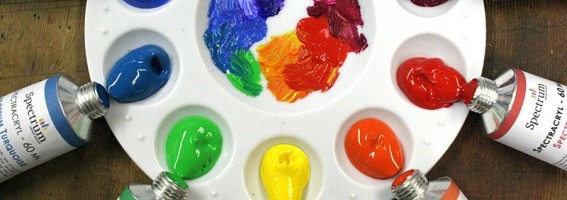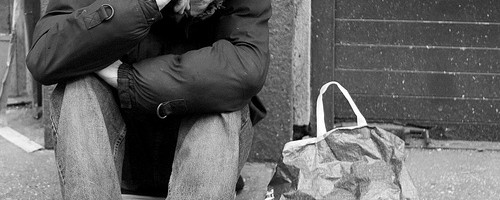Many, many moons ago when my son was just a toddler, I was working part time as an attendant at the Dartmouth College Art Gallery. In this capacity, I was charged with making sure that no one touched the art, and I also had a counter device so that I could keep track of the number of visitors. An easy and peaceful job! Well on this particular day stretching back in the recess of my memory, it was Thanksgiving, and there was a huge snow storm. I did not want to go to work. But I only had a short three hour shift so I plowed through the snow to my bulldozer Saab 95 wagon and drove the five miles to the Hopkins Center for my shift. I sat quietly, reading. There were no visitors of course, because no one was crazy enough to be out in the storm and everyone was cozily ensconced at home enjoying Thanksgiving. Then he silently entered, the music Artist in Residence, Robert Northern, who later became famously known as Brother Ah. He was carrying a flute and he began to play, a soft, lilting, beautifully haunting melody. I was enraptured! I do not remember if I spoke to him as he left, I was so awed by the experience. But it is an experience that I never forgot, a gift from a giver who may never have realized the effect those moments had on me. So when these earthly raptures occur, are we receptive to the beauty of the moment? Also, can we purposely participate in creating them for others? I was just wondering…………………..
Another not so rapturous, yet significantly memorable moment occurred for me about five years later. I was living on Cape Cod at this time. Fry boots were the rage. I wanted lace-ups, which were harder to find, and I learned a leather shop in Chatham had some. I drove the same reliable Saab to that leather shop, filled with excited anticipation. It was very close to Christmas, and my husband and I were separated, so I was going to treat myself with this gift for which I had been longing. I entered the store and quickly told the friendly bearded clerk what I came for. He brought me the boots and I quickly laced them up, strutting back and forth, admiring myself in front of the mirror. “Ah, yes, they suit me,” I thought silently, as I was thrilled to have finally found them. I went to the counter to make my purchase, and there, hanging on a peg, was the most beautiful leather pouch bag! It was a perfect accompaniment to the boots. I put the boots back on and sashayed back and forth again in front of the mirror, now with both boots and pocketbook. Finally, I looked longingly at the purse as I reluctantly returned it to the peg where it had been hanging. Clearly I could not afford it. I paid for the boots and the clerk handed me my package. Then he said, “Come here,” and he lifted the purse from the peg and draped it over my head onto my neck and said with a big smile, “Merry Christmas!”
More recently, I learned that I had breast cancer. I was fortunate because it was very early stage, although it still necessitated surgery followed by a month of radiation. I couldn’t get scheduled to start at the center closest to me so I scheduled myself to have it done in Falmouth, normally a half hour ride. However, it was July, the peak of the tourist season, so the daily drive took twice as long. But still, I never lost sight of the fact that this was curable and I was very fortunate! And best of all, I didn’t need chemo! I met many different people during my daily encounters. My conversations with these people were also part of the gift, many of them struggling with much greater challenges than what I had to endure. The gift of these conversations was the courage, spirit, and hope with which these people faced their problems. One woman’s story remains with me vividly. She was about twenty years younger than me and she had to take the boat every day from Martha’s Vineyard. Then she had to arrange for a ride to and from the hospital as well. Her courageous attitude will remain with me always. The best part of the radiation was graduation day. The staff explained that there would be a celebration. Mine was even more special. A group of five of my friends surprised me by being there while they and the staff adorned me with confetti! Afterward they took me to lunch. Their support at this challenging time of my life was a beautiful gift!
I am not aware of all the gifts I may have given, but I do recall being a messenger of TLC during my month long hospitalization when I was 33. The three weeks after my surgery required rest, although I was able to ambulate. I began to make daily rounds to each room on my hallway. The other patients, who were mostly bedbound, expressed their thanks for my daily visitations. It was something that they looked forward to and helped for their recovery. Little did I know that this was practice for my future! After obtaining my doctorate, I consulted in nursing homes for many years.
Gifts appear in many packages. Some are like the beautiful experience of haunting music on that Thanksgiving day years ago. Some are simply companionship or a helping hand. Some gifts are physical objects, although it is the meaning behind them that is most important. It helps if you can become more fully aware of the gifts you have received. I have many more I don’t have the space to share, but I hope that these accounts will help to stimulate your memory so that the beauty of what you have received in your life can blossom, creating your own bouquet of gifts. It is not so difficult to make someone’s day more beautiful. Joggle your memory and bask for a moment in what you have received. Tune yourself to become more aware when you are receiving a gift. Then, will you join me in passing on the gift of human kindness and beauty? I was just wondering……………………….










